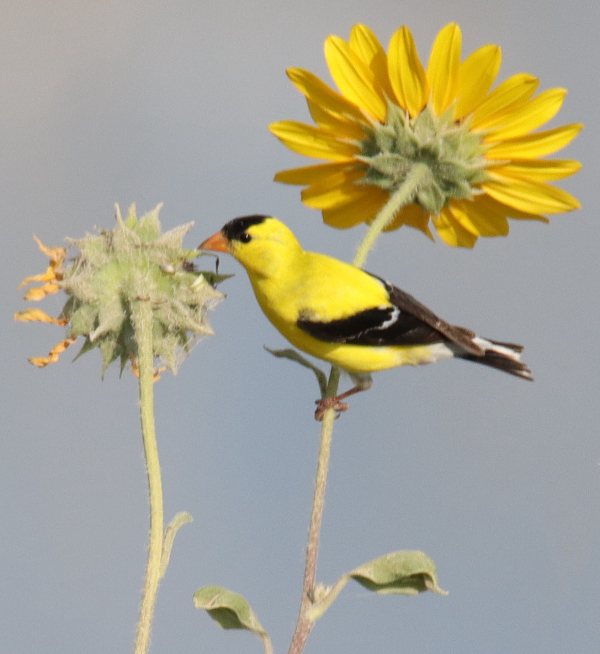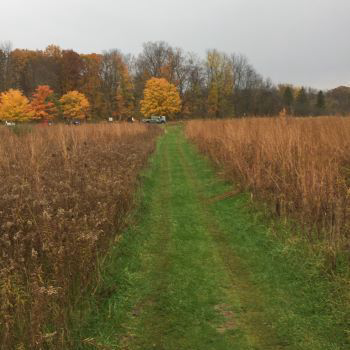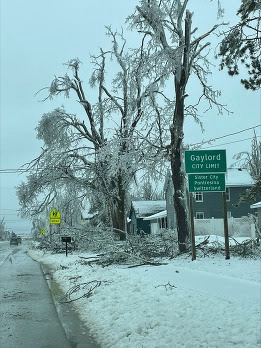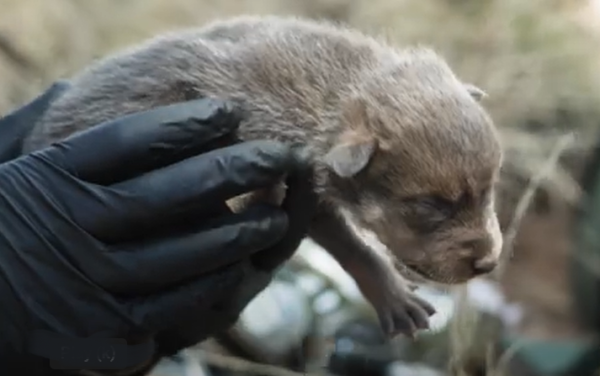Gardening for the Birds



Just as our gardening and landscaping beautifies our yard and makes it more attractive for our family, neighbors, visitors, and others, we can make our yards more attractive for birds at the same time. Read more
Outdoor commentary and legislative issues.

Goldfinch



Just as our gardening and landscaping beautifies our yard and makes it more attractive for our family, neighbors, visitors, and others, we can make our yards more attractive for birds at the same time. Read more

Now through July 29, 2025, the Michigan Department of Natural Resources Wildlife Habitat Grant Program is accepting applications with a focus on projects that restore large complexes of grassland and savanna habitat.
“Grasslands and savannas were once abundant, but are now rare in Michigan,” said DNR Wildlife Division Chief Sara Thompson. “By partnering with conservationists across the state to restore grasslands, we can provide important habitat for wildlife, as well as numerous benefits for Michiganders. Grasslands help prevent erosion and flooding, filter runoff, and pull carbon dioxide out of the air – protecting our water and air.”
Funding for this critical habitat work is available for local, state, federal and tribal governments, and profit and nonprofit groups through an open, competitive process. Minimum grant amounts will be set at $50,000, with the maximum being the amount of funds available for this grant cycle. The 2025 overall available grant amount is approximately $500,000. Read more

Zanders, a premier national distributor based in Sparta, Illinois, is proud to announce the highly anticipated Tactacam ULTRA Trail Camera is now in stock and available for immediate shipment to dealers nationwide.
The REVEAL ULTRA is packed with game-changing features designed by hunters, for hunters. Experience the REVEAL ULTRA—a premium camera built to redefine your expectations for performance. As the most advanced camera Tactacam has ever made, ULTRA takes everything great about the REVEAL Pro 3.0 and supercharges it with live video streaming*, new Active GPS, and a switchable low-glow/no-glow flash for added versatility.
Key features of the Tactacam ULTRA include: Read more

Thursday, the Senate Energy and Natural Resources Committee released their provision of the budget reconciliation bill, the large and comprehensive bill that has been consuming most of the oxygen in the nation’s capital for much of the 119th Congress. Included in the Senate Energy and Natural Resources Committee’s reconciliation text is the mandate to arbitrarily sell-off at least 2 million acres and up to 3 million acres of federal public lands across 11 western states, which the Congressional Sportsmen’s Foundation (CSF) strongly opposes.
Last month, when the House was considering their version of the reconciliation bill, CSF put out a statement expressing our concerns with selling-off and disposing of federal public lands through the budget reconciliation process. The House-passed reconciliation bill contained no public land disposal provisions. To be clear, CSF is not anti-disposal or sale in principle – we recognize there are real challenges facing local communities across the country where federal landownership is high. CSF understands, and in the right circumstances, can support the transfer or disposal of federal lands that are low in both recreational and biological value, and through a process that has leveraged the tools at our disposal to conduct small, thoughtful exchanges or sales that result in a win-win for sportsmen and women, conservation, and local communities. But, the details and process matter when conducting any land sale, transfer, or exchange.
CSF is willing to have serious discussions about how we can leverage the existing authorities in place to provide for the thoughtful and strategic analysis of how we can meet the needs of local communities while ensuring we stay true to one of the core tenets of what makes America unique – our magnificent system of federal public lands that belong to all American citizens. Read more
Two campers were found dead Sunday at a national park – Isle Royale National Park – on a remote island in the middle of Michigan’s Lake Superior, authorities said.
Rangers were alerted around 4 p.m. that two people were dead at a backcountry campground within Isle Royale National Park, the National Park Service (NPS) said on Tuesday, June 10th.
The identities of the two campers, along with their causes of death, were not immediately known, according to NPS.


There are a lot of things you can learn about birds when you have a chance to recognize and observe individual birds that visit your feeding station and birdbath. Studying the behavior of individual birds can provide insights that take you to another level of enjoying birds. But too often, one male of a species looks like another, as do all the females – at least to humans. Every once in a while though, a bird comes around that shows some identifying characteristic, such as a male Baltimore Oriole that dropped by about 10 days ago that is colored yellow-orange rather than deep Baltimore orange.
It’s always something of a breakthrough when you have a bird that you can re-identify Read more

Many people who live in northern Michigan are still cleaning up and dealing with the effects of a major ice storm that hit at the end of March, leaving large swaths of downed limbs and broken trees in its path.
Ice storms are a recurring challenge in the Midwest. Freezing rain can add substantial weight to limbs, causing even healthy trees to snap. And Michigan is currently in thunderstorm and tornado season, which can also wreak havoc in forests and across urban landscapes.
While utility and public works crews have worked quickly to restore power and clear roads, the damage to community trees will take longer to fully assess and manage. Ultimately, events like this also can offer opportunities to reassess our approach to tree management and build stronger, resilient urban forests.
 On two back-to-back days, June 7-8, residents and out-of-state visitors can grab a fishing rod, ride Michigan’s off-road trails and/or visit a state park and other outdoor spaces – all at no cost – during “Three Free” Weekend. All ORV and fishing rules and regulations still apply.
On two back-to-back days, June 7-8, residents and out-of-state visitors can grab a fishing rod, ride Michigan’s off-road trails and/or visit a state park and other outdoor spaces – all at no cost – during “Three Free” Weekend. All ORV and fishing rules and regulations still apply.
 In the wake of the March 28-30 ice storm in northern Michigan, the DNR and dedicated local communities have been relentless in their efforts to clear storm damage and restore facilities statewide.
In the wake of the March 28-30 ice storm in northern Michigan, the DNR and dedicated local communities have been relentless in their efforts to clear storm damage and restore facilities statewide.
We’re proud to report significant progress: 93% of parks and recreation facilities, 27% of state-managed nonmotorized and motorized trails and 36% of state forest roads have been safely reopened.
Witness the storm’s impact and our ongoing recovery through drone footage and photos on the DNR’s interactive ice storm story map.
Visit the DNR’s ice storm response page to view a dashboard with the latest status (open, partially open, temporarily closed) of state parks, state-managed trails, boating access sites, state forest campgrounds and state forest roads, as well as to find an interactive map, safety updates and more.

Mexican wolf fostering efforts for 2025 have been completed, with 17 wolf pups placed into wild dens. In total, six were fostered into a single den in Arizona and 11 into three different dens in New Mexico.
Fostering Mexican wolf pups from captivity into the wild is a proven approach to managing the genetic diversity of the wild population. Used since 2016, a total of 146 fostered pups have been introduced into wild dens in Arizona and New Mexico.
All Mexican wolves in the wild originated from seven founders — making genetic management a key to recovery and delisting of the Mexican wolf.
The goal for 2025 was to place a larger number of pups into dens in Arizona, which was relatively successful with twice as many pups going to Arizona compared to last year. Read more